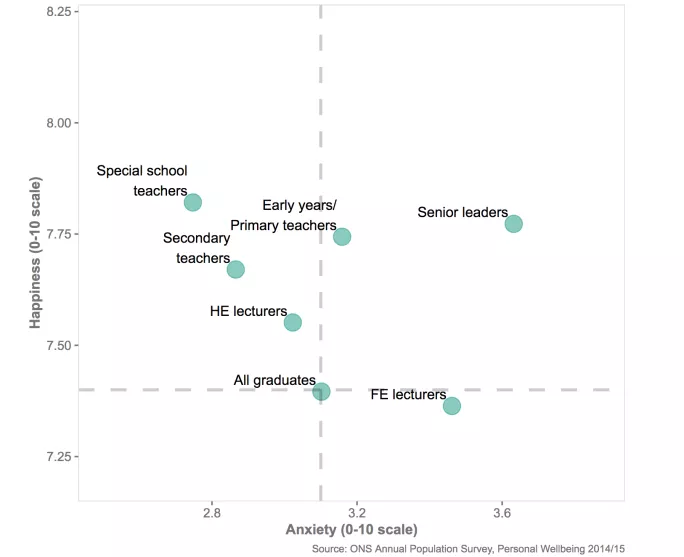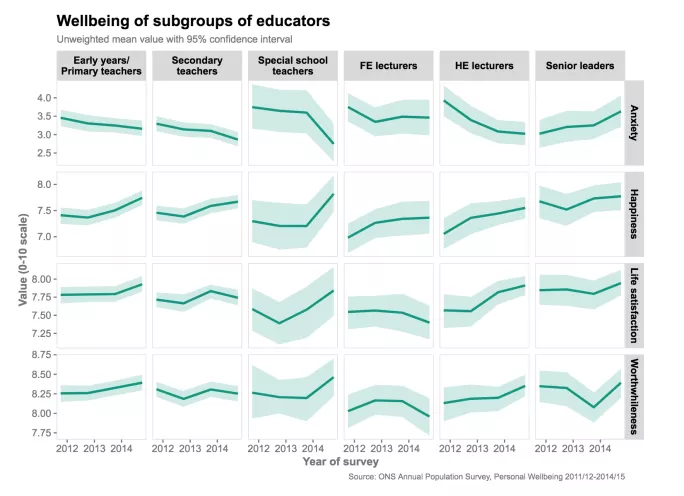Further education lecturers have high levels of anxiety and the lowest levels of wellbeing among educators, according to the Education Policy Institute (EPI).
Research published this morning shows that FE teachers are the lowest-scoring group on the happiness scale and the second highest-scoring group on the anxiety scale.
More than 2,500 educators were interviewed as part of the Office for National Statistics’ (OfS) annual population survey. It revealed that, on average, teachers were happier, more satisfied with life and found their lives more worthwhile than the average graduate.
Background: FE teachers face higher workload than those in schools
News: £1.2bn spent on ‘fake’ apprenticeships
Opinion: Teachers, embrace joy and change your world in 2020
But when it came to FE teachers specifically, the data showed another story. The happiness of FE staff has risen since 2012, but feelings of worthwhileness and life satisfaction have decreased.
The report says: “Wellbeing amongst senior leaders and FE lecturers is either plateauing or falling, and anxiety is not improving. A possible explanation is that both FE lecturers and senior leaders in schools have had to deal with increasing pressure from accountability systems and, particularly in the FE sector, budget squeezes.”
‘Shocking’ anxiety gap
The government has pledged more funding for the sector - £400 million for 16- to 19-year-old education and £3 million for a National Skills Fund - but colleges and staff are yet to see the impact of this.
Ian Pryce, principal of Bedford College Group, said the happiness and anxiety gap was “quite shocking”.
Andrew Harden, the University and College Union’s head of further education, said: “After a decade of cuts, it is little wonder that those working in further education are reporting such worrying levels of anxiety and dissatisfaction. In recent years, staff have had to contend with rising workloads, the uncertainty and upheaval of area reviews, and watching the value of their pay plummet by over 25 per cent.
“A top priority for colleges and the government must be to ensure that new funding for the sector is invested in staff - that should start with closing the £7,000 pay gap between teachers in schools and teachers in colleges.”
In June last year, the UCU published a report revealing that FE teachers have a higher workload than their peers in primary and secondary schools.
At the time, the authors said: “Anyone who has taught full time knows that a weekly workload of that number of hours for longer than a few weeks is likely to lead to health problems. In the context of this report, when viewed alongside other factors, we would argue that such a workload will considerably reduce teachers’ ability to facilitate transformative teaching and learning.”






